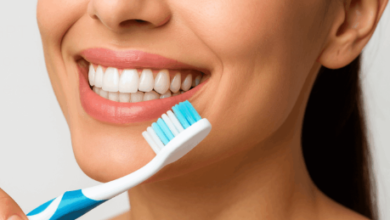Finding the Best Dentist in Toronto: A Comprehensive Guide

Understanding Your Dental Needs
Before you even start searching for a dentist, it’s a good idea to figure out what you actually need. Are you just looking for routine check-ups, or do you have something specific going on? Thinking about this stuff beforehand can really help narrow down your choices and make sure you find the right fit.
Identifying Specific Oral Health Requirements
Okay, so what’s the deal with your teeth? Do you have sensitive teeth? Maybe you’ve been putting off dealing with a cavity. Or perhaps you’re interested in something like cosmetic dentistry in Toronto to brighten your smile. It’s important to be honest with yourself about any existing problems or desired improvements. Make a list! This will help you communicate clearly with potential dentists and ensure they can meet your specific needs. For example:
- Do you have frequent headaches or jaw pain?
- Are your gums bleeding when you brush?
- Do you have any loose or missing teeth?
Considering Family Dental Care
If you have a family, you’ll want to think about everyone’s needs. Do you want a family dentist who can see patients of all ages? Or would you prefer separate dentists for yourself and your kids? Some dentists are great with kids, while others specialize in adult dental care. Also, consider if anyone in your family has special needs or dental anxieties that require a more patient and understanding approach.
Evaluating Specialized Treatment Needs
Sometimes, general dentistry isn’t enough. You might need a specialist. For example, if you need braces, you’ll want an orthodontist. If you have gum disease, a periodontist is the way to go. And if you’re considering dental implants, you’ll want to find a dentist with experience in that area. Knowing if you need a specialist upfront can save you time and ensure you get the best possible care. Here’s a quick rundown:
- Orthodontics: Braces and aligners to straighten teeth.
- Periodontics: Treatment of gum disease.
- Endodontics: Root canals and other treatments for the inside of the tooth.
Assessing Dentist Qualifications and Experience
Okay, so you’re trying to find a good dentist, right? It’s not just about a nice smile; it’s about making sure they actually know what they’re doing. Let’s break down how to check if a dentist is qualified and experienced.
Verifying Professional Credentials
First things first, you gotta check their credentials. I mean, would you trust a doctor who didn’t go to medical school? Same deal here. Make sure your dentist graduated from an accredited dental school. It’s usually listed on their website or office. You can also check with the Royal College of Dental Surgeons of Ontario to confirm they’re licensed to practice in Toronto. It’s like, the bare minimum to make sure they’re legit.
Reviewing Years of Practice and Specializations
Experience matters, plain and simple. A dentist fresh out of school might be great, but someone with years under their belt has probably seen it all. They’re more likely to handle tricky situations without breaking a sweat. Also, see if they have any specializations. Need an implant? Find someone who specializes in that! It’s like going to a mechanic who knows your car model inside and out.
Exploring Continuing Education and Training
Dentistry is always changing. New techniques, new technology… it’s a constant learning game. A good dentist stays up-to-date by taking continuing education courses. It shows they’re committed to providing the best care possible. Ask them about recent courses or training they’ve completed. If they’re passionate about learning, that’s a good sign!
Evaluating Patient Reviews and Testimonials
Okay, so you’re trying to find a good dentist, right? One of the best ways to get a feel for a dentist before you even step into their office is by checking out what other patients have to say. It’s like getting the inside scoop! Here’s how to do it:
Consulting Online Review Platforms
Seriously, the internet is your friend here. Sites like Yelp, Google Reviews, and even specialized dental review sites can be goldmines. Don’t just look at the star rating, though. Dig into the actual reviews. Are people raving about how gentle the dentist is? Or are there a bunch of complaints about long wait times and feeling rushed? Look for patterns. A single bad review might be a fluke, but if you see the same complaints popping up over and over, that’s a red flag. Also, see if the dentist responds to reviews – that shows they care about patient feedback.
Seeking Personal Recommendations
Online reviews are great, but word-of-mouth is still super powerful. Ask your friends, family, coworkers, or neighbors if they have a dentist they love. People are usually pretty happy to share their experiences, good or bad. Plus, if someone you trust recommends a dentist, you’re already starting from a place of confidence. You can even ask your doctor or pharmacist for recommendations – they often have a network of trusted healthcare professionals.
Understanding Common Patient Feedback
When you’re reading reviews or talking to people, pay attention to the common themes that come up. Here are some things to watch out for:
- Communication: Does the dentist explain things clearly and answer questions patiently? Or do they rush through explanations and make you feel confused?
- Pain Management: Is the dentist gentle and attentive to your comfort? Do they offer options for pain relief during procedures?
- Professionalism: Is the staff friendly and helpful? Is the office clean and well-maintained? Do they seem organized and efficient?
- Wait Times: Are appointments on time, or do you usually have to wait a long time to be seen?
- Cost Transparency: Are the fees clearly explained upfront? Do they help you understand your insurance coverage and payment options?
By paying attention to these factors, you can get a pretty good sense of what to expect from a dentist before you even book an appointment. It’s all about doing your homework!
Considering Clinic Environment and Technology
It’s easy to overlook the clinic itself when you’re hunting for a dentist, but the environment and the tech they use can make a huge difference in your experience. I mean, nobody wants to go to a dingy, outdated office, right? It’s worth taking a look around and seeing what’s what.
Assessing Office Cleanliness and Comfort
First impressions matter. Is the place clean? Does it smell okay? Are the chairs comfy? These things might seem small, but they add up. A clean and comfortable office shows that the dentist cares about patient well-being. I always feel better when the place looks like they take hygiene seriously. Plus, if you’re already nervous about being at the dentist, a relaxing environment can really help calm your nerves.
Reviewing Modern Dental Equipment
Old equipment isn’t just an aesthetic issue; it can affect the quality of care. Digital X-rays, for example, expose you to way less radiation than traditional ones. And things like intraoral cameras let you see what the dentist sees, which is pretty cool. Modern tech often means more accurate diagnoses and less invasive treatments. If they’re using the latest gadgets, it’s a good sign they’re committed to providing the best possible care. Plus, it might mean shorter appointment times and less discomfort.
Ensuring a Welcoming Atmosphere
The vibe of the office is important. Are the staff friendly and helpful? Do they smile and make eye contact? A welcoming atmosphere can make a huge difference, especially if you’re someone who gets anxious about dental appointments. I once went to a place where the receptionist acted like I was bothering her just by showing up, and it totally soured the whole experience. You want a place where you feel comfortable asking questions and where the staff seems genuinely happy to help. And if you need an emergency dentist in Toronto, you want to be sure that the place you go to is welcoming and can help you feel at ease.
Examining Location and Accessibility
Finding a dentist that’s easy to get to can seriously impact how often you actually go. It’s one of those things you don’t think about until you’re stuck in traffic or realize the office is nowhere near a bus stop. Let’s break down what to consider when it comes to location and accessibility.
Proximity to Home or Work
Ideally, your dentist’s office should be a quick trip from either your home or workplace. Think about it: squeezing in an appointment during your lunch break or after work becomes way easier if the office is just around the corner. Plus, for those unexpected dental emergencies, like a chipped tooth or sudden pain, having a dentist nearby can be a lifesaver. I know someone who had a terrible toothache and was so grateful their dentist was only a 10-minute drive away. Also, if you’re considering something like teeth whitening in Toronto, you might need multiple appointments, so location becomes even more important.
Public Transportation Options
Not everyone drives, and even if you do, sometimes public transit is just easier. Check if the dentist’s office is easily accessible by bus, subway, or streetcar. A short walk from a major transit stop can make a huge difference, especially during bad weather. I used to have a dentist who was a 20-minute walk from the subway, and let me tell you, those winter appointments were brutal.
Parking Availability
If you’re driving, parking can be a real headache. Does the office have its own parking lot? Is there street parking available? And if so, is it metered or free? Nothing’s worse than arriving late and stressed because you spent 20 minutes circling the block looking for a spot. Some dentists even validate parking, which is a nice bonus. Here’s a quick table to help you think about parking:
| Parking Type | Pros | Cons |
| Office Lot | Convenient, usually guaranteed spot | Can be limited, sometimes costs extra |
| Street Parking | Potentially free | It can be hard to find, time limits |
| Nearby Garage | Usually available | Can be expensive |
Understanding Financial and Insurance Policies
Let’s be real, dental work can get pricey. It’s super important to figure out the money stuff before you’re sitting in the chair getting a root canal. Nobody wants surprise bills, right?
Clarifying Payment Options
First things first, how are you gonna pay? Most places take credit cards, and some still do checks (who even uses those anymore?). But what about payment plans? A lot of dentists now offer ways to spread out the cost, especially for bigger procedures. It’s worth asking about. Some offices even work with third-party financing companies. Here’s a quick rundown of common payment methods:
- Credit Cards (Visa, Mastercard, Amex)
- Debit Cards
- Personal Checks (less common these days)
- Payment Plans (in-house or through financing companies)
- Cash
Verifying Insurance Acceptance
Okay, insurance. This can be a headache. Before you even book an appointment, call the office and make sure they accept your insurance. And don’t just assume they do – double-check! Ask if they’re in-network or out-of-network. In-network usually means lower costs for you. Also, see if they can directly bill your insurance company. It saves you a ton of paperwork.
Discussing Treatment Costs Transparently
Always, always get an estimate before any work is done. A good dentist will be upfront about the costs. They should be able to break down the price of each procedure. Don’t be afraid to ask questions! What’s included in the price? Are there any hidden fees? What happens if something unexpected comes up during the treatment? If they can’t give you a clear answer, that’s a red flag. Here’s a sample cost breakdown:
| Procedure | Estimated Cost | Insurance Coverage | Out-of-Pocket |
| Cleaning | $150 | $100 | $50 |
| Filling | $200 | $150 | $50 |
| Root Canal | $1200 | $800 | $400 |
| Crown | $1000 | $600 | $400 |
Prioritizing Patient Comfort and Communication
Finding the best dentist in Toronto isn’t just about qualifications; it’s also about how comfortable you feel during your visits. Good communication and a relaxing environment can make all the difference, especially if you’re someone who gets a little anxious about dental appointments. I know I do!
Observing Staff Interaction
Pay attention to how the staff interacts with patients. Are they friendly and helpful? Do they seem genuinely interested in making you feel at ease? A welcoming and supportive team can significantly reduce any anxiety you might have. It’s a good sign if they take the time to answer your questions and explain procedures clearly. I once went to a dentist where the receptionist barely made eye contact – not a great first impression!
Assessing Dentist-Patient Communication Style
How well does the dentist communicate with you? Do they explain things in a way that’s easy to understand, or do they use a lot of technical jargon? A good dentist will listen to your concerns, answer your questions thoroughly, and make sure you feel informed about your treatment options. It’s important to find someone whom you feel comfortable talking to openly about your oral health. I really appreciate it when a dentist takes the time to show me X-rays and explain what’s going on.
Ensuring a Stress-Free Experience
Think about the overall atmosphere of the dental clinic. Is it clean and comfortable? Do they offer amenities like calming music or TVs to help you relax? Some dentists even offer sedation options for patients who are particularly anxious. The goal is to create an environment where you feel as relaxed and stress-free as possible. A positive experience can make you more likely to keep up with regular dental visits, which is super important for your overall health. I always feel better when the waiting room doesn’t feel like a sterile hospital environment.
Wrapping Things Up
So, there you have it. Finding a good dentist in Toronto might seem like a big job at first, but it doesn’t have to be. Just remember to think about what you really need, do a little digging, and don’t be afraid to ask questions. Your teeth are important, and a good dentist makes all the difference. Take your time, pick someone you feel good about, and you’ll be smiling bright in no time.




